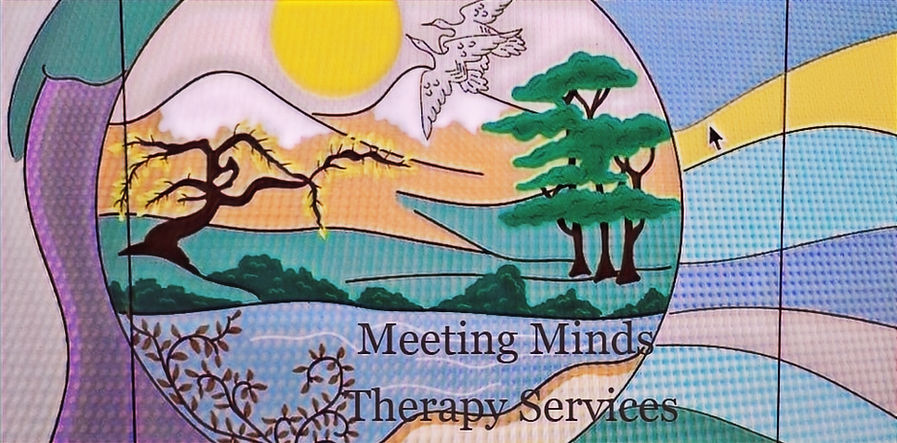Fostering Healthy Relationships Through the Power of Positive Behaviours
- Lyn Reed
- Jun 1, 2025
- 3 min read
Building healthy relationships is essential for our mental well-being and happiness. They influence our daily lives and shape how we interact with those around us.
Positive behaviours truly enhance connections and create lasting bonds.
This post explores the significance of prioritising positive actions over negative traits in fostering and nurturing healthy relationships.
Understanding Relationships
At the heart of every relationship—whether romantic, familial, or platonic—are behaviours that define how people interact. These behaviours arise from personal values, life experiences, and emotional intelligence.
Healthy relationships thrive on mutual respect, trust, and understanding. When people engage in positive actions, they set a strong foundation that can weather misunderstandings and conflicts.
Research shows that couples who practice positive communication are ten times more likely to have a successful relationship than those who focus on negative traits. Traits such as impatience or defensiveness act as barriers to empathy and understanding,
The Power of Positive Behaviours
Positive behaviours cover a variety of actions that enhance relationships. Essential behaviours include:
Active Listening
Expressing Gratitude
Showing Empathy
These actions promote support and understanding, sending a message of commitment to the other person.
Active Listening
Active listening is more than just hearing words; it involves being engaged and genuinely trying to understand another person's thoughts and feelings.
When a partner practices active listening, they validate each other's emotions, thus fostering openness. For example, a study revealed that couples who actively listen to one another report 40% higher relationship satisfaction compared to those who do not. This approach creates a safe space, making people feel comfortable sharing their thoughts without fear.
Expressing gratitude can significantly strengthen bonds. Recognising and appreciating even the small things in daily life creates a positive atmosphere.
Research shows that couples who regularly express gratitude report a 20% increase in overall relationship satisfaction.
When individuals feel valued, they are more likely to reciprocate kindness. This establishes a cycle of positivity that enhances interaction.
It is vital in building compassion and connection within any relationship.
When individuals practice empathy, they can offer better support during challenging times. For instance, couples who demonstrate empathy toward each other during conflicts are 50% more likely to resolve issues peacefully. This shared understanding builds resilience, enabling relationships to flourish, even in adversity.
The Detriment of Focusing on Negative Traits
Recognising negative traits is important, but dwelling on them can be harmful. Traits like stubbornness or anger can overshadow an individual's positive qualities.
When people focus too much on negative traits, it often leads to a cycle of criticism and resentment. This negativity can create emotional distance, jeopardising the relationship. If one partner frequently mentions their partner’s flaws, it can lead to defensive reactions, reducing intimacy.
Breaking the Cycle
To foster healthier interactions, it’s essential to shift focus from negative traits to positive behaviours. Here are practical steps to achieve this:
Practice Mindfulness: Being aware of your thoughts and feelings helps us recognise when negative traits arise. Mindfulness promotes pausing before reacting, allowing for positive responses.
Engage in Open Communication: Honest conversations about feelings can transform discussions of negative traits into opportunities for positive change. For example, instead of saying, “You are always late,” try, “I appreciate when you try to be on time; it helps our plans go smoothly.”
The Role of Forgiveness
Forgiveness plays a crucial role in maintaining healthy relationships. Everyone has moments when negative traits surface, and acknowledging this allows individuals to move forward.
This process of letting go fosters resilience, showing that relationships can thrive despite challenges.
Building Lasting Connections
Creating lasting connections requires active engagement in positive behaviours. Individuals contribute to a supportive environment that enhances the relationship's health.
Encouraging Personal Growth
Supporting personal growth for both oneself and one’s partner is essential. When individuals strive for improvement, it benefits the overall relationship.
Look for growth opportunities together through activities like:
Trying new hobbies
Taking trips
Joining classes or workshops
These shared experiences can deepen relationships and highlight positive interactions.
Lasting Impact of Positive Focus
While acknowledging negative traits is necessary, positive behaviours are fundamental to healthy relationships. By engaging in active listening, expressing gratitude, and showing empathy, people can dramatically enhance their connections.
Concentrating on positive actions cultivates loving, supportive environments, leading to personal growth and understanding. This approach helps turn potential conflicts into opportunities for deeper connections.
Thus, by prioritising positive behaviours over negative traits, you can build healthier, more meaningful relationships that endure through life's ups and downs.





Comments